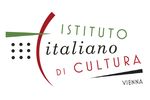Carlo Broschi Farinelli (1705-1782) - The career, skills and networks of a castrato singer - Institut für Musikwissenschaft
←
→
Trascrizione del contenuto della pagina
Se il tuo browser non visualizza correttamente la pagina, ti preghiamo di leggere il contenuto della pagina quaggiù
Carlo Broschi Farinelli (1705-1782)
The career, skills and networks of a castrato singer
International conference * May 9-12, 2019
Vienna, Österreichische Gesellschaft für Musik
#farinellispathsConference board
Stefano Aresi (Stile Galante, Amsterdam)
Nicholas Baragwanath (University of Nottingham)
Talya Berger (Stanford University)
Bruce Alan Brown (University of Southern California)
Rosa Cafiero (Università Cattolica del Sacro Cuore)
Michele Calella (Universität Wien)
Augusto Guarino (Università degli Studi di Napoli L’Orientale)
Paologiovanni Maione (Conservatorio di Musica San Pietro a Majella)
Claudio Toscani (Università degli Studi di Milano)
Lucio Tufano (Università degli Studi di Palermo)
*
Programme
May 9 — Thursday
14.00 Welcome and opening address
Session 1: Farinelli in the press, in literature, correspondence and iconography — Chair: Michele Calella
14.30 Tina Hartmann
How to tell a lost voice? Farinelli in dramatic and narrative literature
15.00 Daniel Martín Sáez
Farinelli’s apotheosis in the press, 1743-1782
15.30 Coffee break
16.00 Francesco Lora
Sacchi catechista: ventitré tesi per la Vita di Farinelli
16.30 Gianluca Stefani
Telling truth in jest: Farinelli and his caricatured portraits
17.00 Elisabetta Pasquini
Signor Don Carlo Broschi, a perfect example of “cordiality, candour and efficacy”:
the Spanish correspondence with Padre MartiniMay 10 — Friday
Session 2: Farinelli: his beginnings and his career (Part I) — Chair: Rosa Cafiero
10.00 Kurt Markstrom
Farinelli and Maestro Porpora
10.30 Marco Pollaci
Farinelli and the art of singing in the eighteenth century: an investigation of the years
of study of an exceptional castrato
11.00 Coffee break
11.30 Valentina Anzani
The teacher Bernacchi, the pupil Farinelli and the myth of the so-called “Bolognese
singing school”
12.00 Paologiovanni Maione
Farinelli sulle scene dell’Altissimo: la carriera sacra del giovane virtuoso
12.30 Lunch break
Session 3: Farinelli: his beginnings and his career (Part II) — Chair: Therese De Goede
14.15 Special exhibition of MS 19111 of the Österreichische Nationalbibliothek
with an introduction by Thomas Leibnitz, Stefano Aresi, and Livio Marcaletti
15.30 Berthold Over
How to impress the public: Farinelli’s Venetian debut in 1728-1729
16.00 Aneta Markuszewska
Farinelli’s connection to the Teatro d’Alibert, and its patrons James III Stuart and
Maria Clementina Sobieska (Rome 1722-1724)
16.30 Coffee break
17.00 Anne Desler
“Questo benedetto Farinello”: Farinelli and his Italian patrons, 1729-1732
17.30 Talya Berger
Farinelli the composerMay 11 — Saturday
Session 4: Farinelli and performance practice (Part I) — Chair: Talya Berger
10.00 Walter Kurt Kreyszig
Johann Joachim Quantz’s encounter with Carlo Broschi Farinelli in Parma and Milan
in 1725: the influence of Farinelli’s vocal “new style” on Quantz’s compositional
practice and music-theoretical discourse
10.30 Paolo Sullo
Il manoscritto Solfeggio dell’Sig[no]r Carlo Broschi detto Farin[elli]: un caso raro nel
panorama delle fonti dei solfeggi napoletani del Settecento
11.00 Coffee break
11.30 Randall Scotting
The life of an aria: Son qual nave and Farinelli’s fame
12.00 Daniel Issa Gonçalves
Farinelli’s voice emission technique: a new insight
12.30 Lunch break
Session 5: Farinelli and performance practice (Part II) — Chair: Lucio Tufano
14.30 Nicholas Baragwanath
Reconstructing Farinelli’s art of improvisation from the primary sources
15.00 Stefano Aresi
“Mi bevo tutte le sante sere otto, nove arie in corpo”: performative issues in Farinelli’s
chamber repertoire at the Spanish court
15.30 Coffee break
16.00 Therese De Goede
Farinelli’s royal Spanish accompanists: basso continuo playing in Spain in the first half
of the eighteenth century
16.30 Livio Marcaletti
“Rinovando [...] nella mente della Cesarea Maestà Vostra la idea della estensione, e
delle altre qualità della mia voce”: Farinelli’s souvenir for Empress Maria TheresaMay 12 — Sunday
Session 6: Farinelli as role-creator — Chair: Claudio Toscani
10.00 Anna Ryszka-Komarnicka
From Barcelona (1708) to Naples (1725): Zenobia in Palmira by Pariati and Zeno
transformed into a galant dramma per musica – with particular attention paid to
Farinelli’s participation in the role of Decio
11.00 Thomas Griffin
Farinelli as Erminia
11.30 Giovanni Andrea Sechi
Orfeo: un pasticcio per Farinelli
12.00 Coffee break
Session 7: Farinelli from Vienna to the recording era — Chair: Nicholas Baragwanath
12.30 Rosa Cafiero – Angela Romagnoli
Farinelli, Vienna and Maria Theresa
13.00 Marco Beghelli
La voce “naturale” dei castrati
*
Practical information
Location and registration Contacts
Österreichische Gesellschaft für Musik Institut für Musikwissenschaft – Universität Wien
Hanuschgasse 3, Hof 4, Stiege 4 – Wien Garnisongasse 15 – 1090 Wien (Austria)
https://musikwissenschaft.univie.ac.at
Registration is free, no fee required
musikwissenschaft@univie.ac.at
Tel.: +43 1 427744201
Stile Galante
https://www.facebook.com/farinellispaths
Aakpad 31 – 1034HC Amsterdam (Nederland)
www.stilegalante.org
stilegalante stilegalante@gmail.com
Tel.: +31 6 27291737held under the institutional sponsorship of
CONSERVATORIODI
CONSERVATORIO DIMUSICA
MUSICA
Dipartimento di Studi SAN PIETRO A MAJELLA
SAN PIETRO A MAJELLA
Letterari, Linguistici e Comparati
Società Italiana di Studi sul Secolo XVIII
in collaboration with
Gezelschap 18eAmsterdam
EeuwPuoi anche leggere

























































